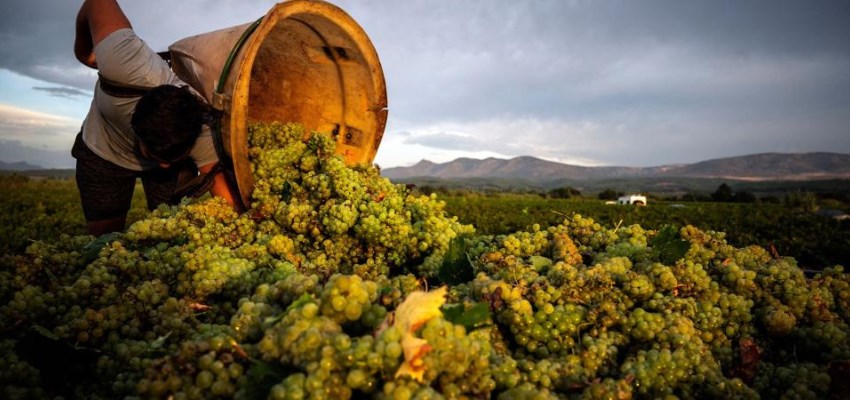
It’s called the “One Block Challenge” and is fundamentally a campaign led by soil “evangelists,” preaching to those open to conversion, and rooted in the principle of planting and growing like the future health and survival of the land depends upon it.
Initiated by the Regenerative Viticulture Foundation (RVF,) imagined and led by winegrowers Stephen Cronk of Maison Mirabeau in Cotignac, France and Caine Thompson of O’Neill Vintners & Distillers in California, it calls upon growers and wineries to set aside just one parcel of their vineyards to try a multi-faceted holistic viticulture approach.
California is an obvious hub for the movement. It’s the fourth largest producer of wine globally and the largest producer of wine in the United States, as three out of every five bottles of wine in the U.S. from California. It’s estimated the annual economic impact, nationally, of the state’s viticulture business is over $114 billion.
Thompson is an RVF trustee and leads sustainability programs for over 15,000 acres of the O’Neill properties. He is managing director of Robert Hall Winery in Paso Robles, California. There, he has converted all but a control five acres of the 130 acres of his company’s vineyard to regenerative organic farming, producing the largest single-vineyard transformation experiment yet.
“So far, 48 growers and vintners are participating: Ancient Peaks, J. Lohr Vineyards and Wines, Austin Hope Wine, Copia Vineyards and Winery, lxv Winery, Allegretto Wines, Parish Family Vineyard, to name a few,” said Thompson.
Beyond this viticulture region, the RVF movement is poised to continue north to California’s Napa and Sonoma regions, and after that, Texas. A variety of vineyards in South Africa, Chile, New Zealand, England, Spain, and others in France are in various stages of implementing the regenerative One Block Challenge (1BC.)
The initiative calls on growers to remove synthetic herbicides, pesticides, and fungicides and use natural compost in place of synthetic fertilizers. Tilling agricultural soil at all is thought less and less to be ultimately beneficial, as it stirs up carbon that’s been pulled into the soil by plants over months and years and disturbs literally tens of billions of beneficial microbes. Animal grazing post-harvest enriches well-tended agricultural land through animal waste. And standards of fair pay and social fairness for workers are critical to this paradigm. For wine, for the employees who know the business, and for terroir in general, it is a good platform to showcase national, if not international standards for best practices.
Click HERE to read the full article.